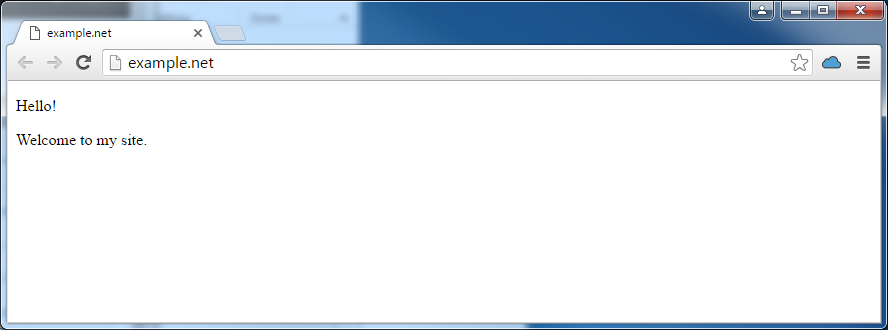After you commit your web site files and push them to the remote
repository, go to Websites & Domains and click the Pull Updates
button next to the repository name. The changes from the remote
repository will be pulled to the cloned Git repository.
You can see the last commit information at Websites & Domains >
Git.
By default, Plesk uses the Automatic deployment mode. This means
that after a file is pushed to the repository, it is immediately
deployed to the target directory (you can switch off this mode if
necessary, see the Select Deploy Mode section).
For example, if you have pulled an index.html file with the text
“Hello! Welcome to my site”, you can immediately click the web site URL
to see the changes.

